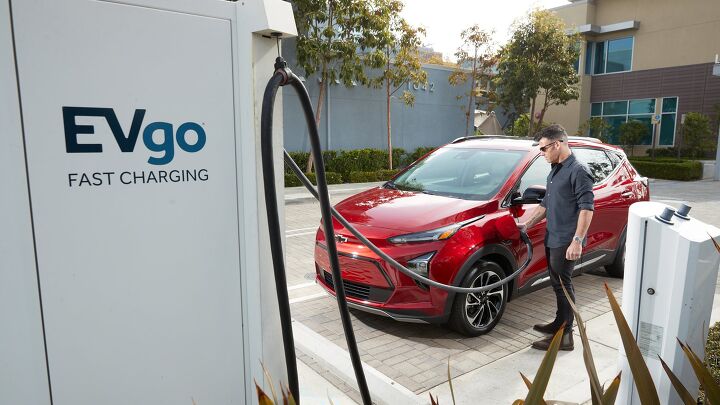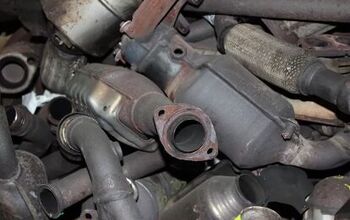EV Supply Chains May Be Dirtier Than You Think

Most of us know that even the most efficient, long-range EVs generate emissions during the raw materials extraction and production phases, and that’s before we count the logistics required to move everything around the world a few times in the process. The Washington Post recently reported on some of the “dirty parts” of EV manufacturing, and it paints a picture of challenges ahead as more people look to make the shift to electrics.
EV batteries weigh hundreds of pounds and require several minerals and other materials that have to be mined. Many of the extraction locations are in poor parts of the world where the environmental safety and protections aren’t as strong as they are here. Materials like manganese mined in South Africa can have significant negative impacts on local communities and the people doing the mining. Workers in some mines report memory loss and slurred speech related to their work.
These challenges are likely going to get worse as demand for raw materials increases. The reporting estimated that demand for lithium will climb 40 times over by 2040, while other minerals will see astronomical growth of 20 times or more over that period. New battery chemistries and designs may help alleviate some of that pressure, but it will be some time before that happens, and the damage will have been done.
As The Washington Post points out, the U.S. is working to expand its supply chain through legislation like the Inflation Reduction Act and other efforts. That could raise EV prices initially, as much of the existing sourcing and refining infrastructure lies in China, and upcoming changes to the tax credit rules will make vehicles with Chinese-sourced or refined materials ineligible.
[Image: Chevrolet]
Become a TTAC insider. Get the latest news, features, TTAC takes, and everything else that gets to the truth about cars first by subscribing to our newsletter.

Chris grew up in, under, and around cars, but took the long way around to becoming an automotive writer. After a career in technology consulting and a trip through business school, Chris began writing about the automotive industry as a way to reconnect with his passion and get behind the wheel of a new car every week. He focuses on taking complex industry stories and making them digestible by any reader. Just don’t expect him to stay away from high-mileage Porsches.
More by Chris Teague
Latest Car Reviews
Read moreLatest Product Reviews
Read moreRecent Comments
- Probert They already have hybrids, but these won't ever be them as they are built on the modular E-GMP skateboard.
- Justin You guys still looking for that sportbak? I just saw one on the Facebook marketplace in Arizona
- 28-Cars-Later I cannot remember what happens now, but there are whiteblocks in this period which develop a "tick" like sound which indicates they are toast (maybe head gasket?). Ten or so years ago I looked at an '03 or '04 S60 (I forget why) and I brought my Volvo indy along to tell me if it was worth my time - it ticked and that's when I learned this. This XC90 is probably worth about $300 as it sits, not kidding, and it will cost you conservatively $2500 for an engine swap (all the ones I see on car-part.com have north of 130K miles starting at $1,100 and that's not including freight to a shop, shop labor, other internals to do such as timing belt while engine out etc).
- 28-Cars-Later Ford reported it lost $132,000 for each of its 10,000 electric vehicles sold in the first quarter of 2024, according to CNN. The sales were down 20 percent from the first quarter of 2023 and would “drag down earnings for the company overall.”The losses include “hundreds of millions being spent on research and development of the next generation of EVs for Ford. Those investments are years away from paying off.” [if they ever are recouped] Ford is the only major carmaker breaking out EV numbers by themselves. But other marques likely suffer similar losses. https://www.zerohedge.com/political/fords-120000-loss-vehicle-shows-california-ev-goals-are-impossible Given these facts, how did Tesla ever produce anything in volume let alone profit?
- AZFelix Let's forego all of this dilly-dallying with autonomous cars and cut right to the chase and the only real solution.


































Comments
Join the conversation
Masterbaiter: that comment makes no sense. Oil companies are out to maximize profits. if they can get cheap oil somewhere (gov't lands) then that just means they can make so much more selling it at going rates.
Bullnuke: There is cheap crude. Crude that takes almost no effort or cost to pump vs crude that is extremely expensive to extract.
Back in the '60's and 70's they would have thought you were nuts to try to extract oil from shale or tar sands.